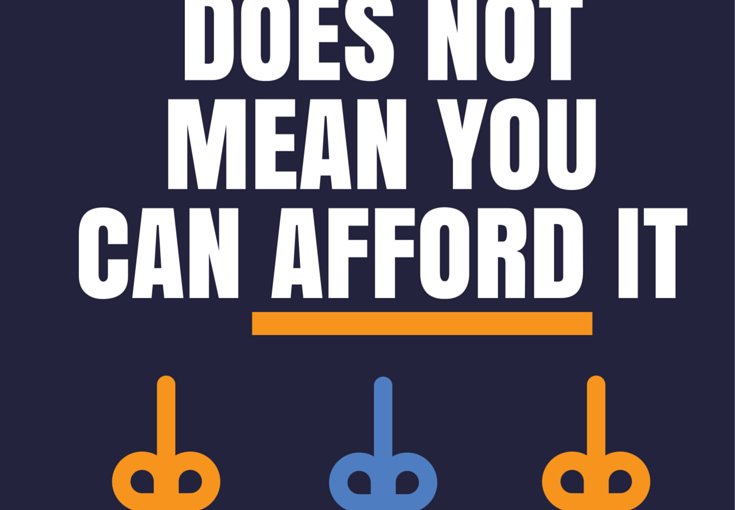Before you start scheduling showings of homes, you should contact a lender and get pre-qualified or, even better, pre-approved for a specific price. This will give you a cap for your home search, a number that you shouldn’t go over when looking for homes to buy, because the lender won’t give you a loan to cover the purchase. However, you should know that qualifying for a specific price doesn’t mean you can afford it. True affordability comes from YOU, not the lender.
Loan officers, mortgage brokers, etc. go by a specific formula when determining how much you can afford. Your debt-to-income ratio is usually a large factor in this. They take into consideration the potential monthly payment, taxes, insurance, and current bills i.e. the total economic burden on the household and compare it to your income. Most lenders require that your debt-to-income ratio is no more than 40%.
These calculations cover a large scope of your finances; however, there are some things that they can’t predict, like lifestyle changes, illnesses, or unforeseen damages. That’s where some self-truth comes into the picture. As someone about to make a huge investment and commitment, it’s incredibly important for you to take a look at your lifestyle. Owning a home requires a good deal of investment after the purchase, because things break and general maintenance is an ongoing responsibility. You don’t want to commit yourself to too high of a monthly payment only to end being “owned” by your home (rather than the other way around).
To give yourself a financial buffer, first determine how much money you would need to replace your car or a large home system (like the HVAC) if it died and work that into an emergency fund. Then, think about other investments you want to make in your future, including in your hobbies, family, and retirement. Estimate how much these may cost and set some deadlines for obtaining the funds you will need to reach your goals. Calculate how much you would need to save every month for this emergency fund and goals, and add that to the amount of money you want leftover after all your bills, including your mortgage, are paid. This will give you a better idea of how much home you can truly afford.
A good lender will address your concerns and go over all your options. Of course, you can always ask your Realtor to help you find homes at a price under that which you’re qualified for. Just because a lender gives you a number doesn’t mean you need to meet it. You can always shop in a lower price range.
If you’re thinking of buying in the Wilmington area, give us a call at (910) 202-2546! We’re happy to help you with your home search and, if you haven’t chose one already, we can refer you to a great local lender, who we’ve worked with in the past.



